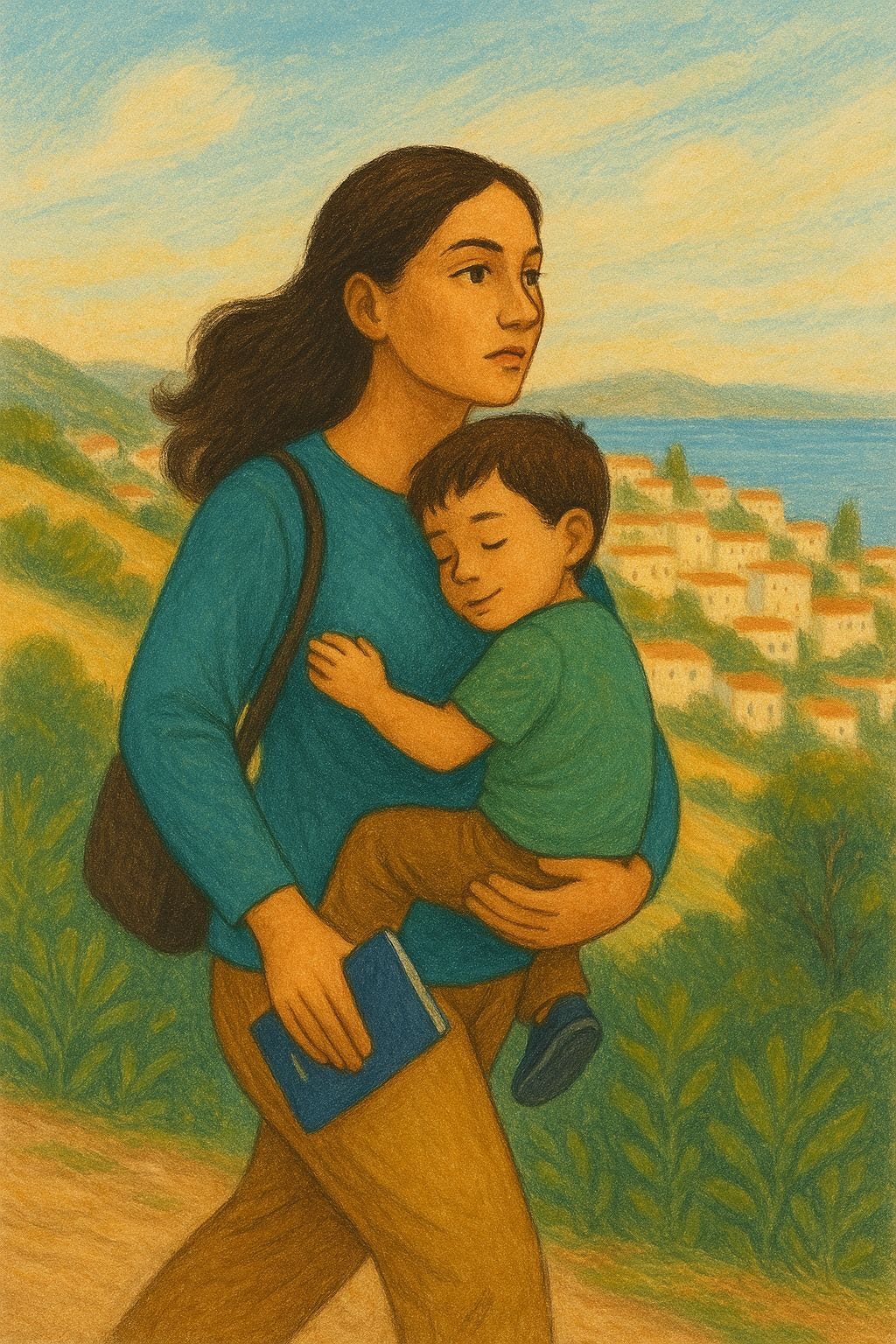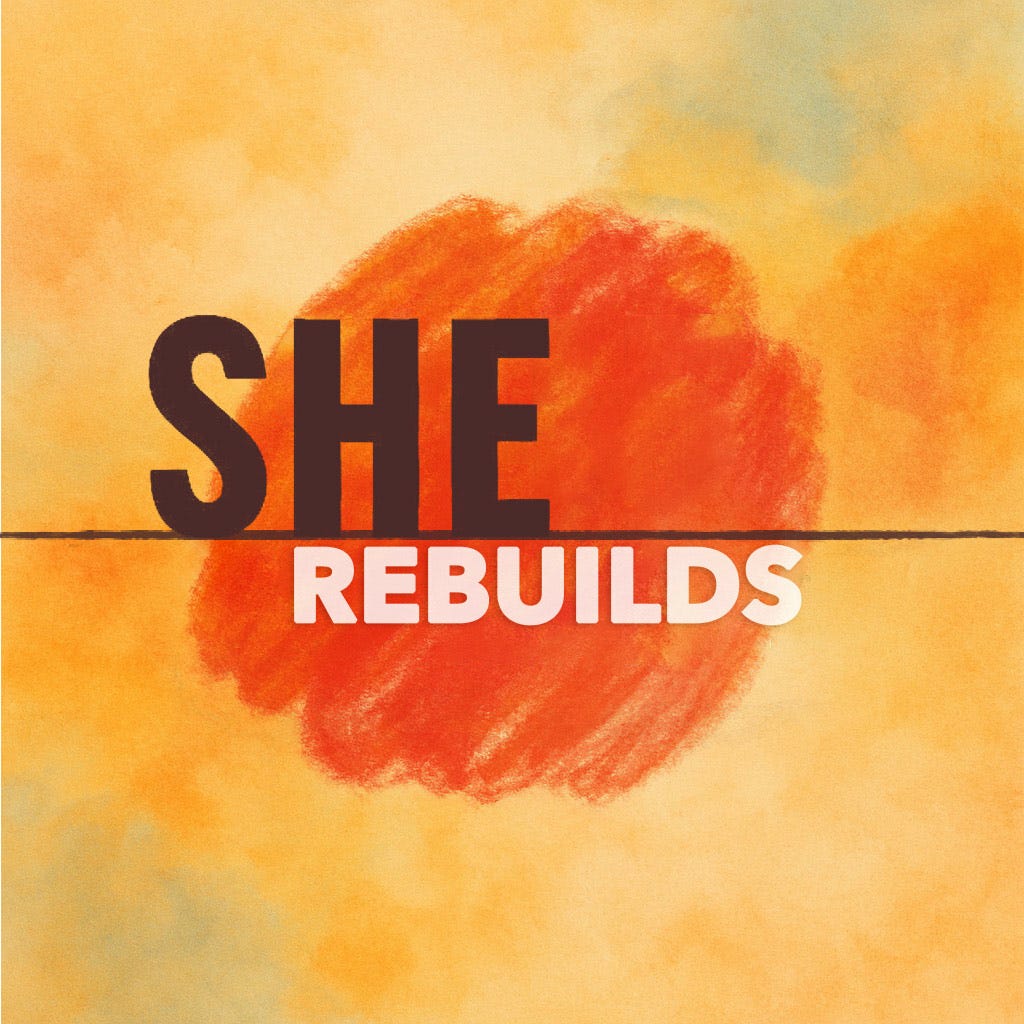What immigrant mothers truly carry
Beyond resilience
My story isn’t unique and that’s part of the problem.
There I was, passport in one hand, my son in the other, sweating through another line that didn’t move. Months of paperwork, embassy visits, contradictory instructions, and long queues wore me down before I even left Venezuela that August 2018. I was already tired when I got on the plane. But nothing prepared me for how invisible I’d feel.
I arrived in Portugal into a kind of limbo. No tax number. No access to healthcare. No official status. You don’t exist until the system says you do.
And even though the language sounded familiar, it quickly revealed itself as something else entirely.
“Puxe” didn’t mean “push,” it meant pull.
“Despachar” wasn’t “to dispatch.”
And “esquisito” didn’t mean “exquisite”, it means strange.
One misunderstanding at a time, I felt myself shrinking. Even our accents felt like too much.
“My daughter learned how to ask for help at the pharmacy before I did. I’ll never forget that day.” - Angolan mother, 36
That’s when migration guilt moved in.
Not because I did something wrong.
But because I couldn’t give my son the emotional steadiness he deserved while I was quietly rebuilding us from zero.
Because I smiled when people asked, “How are you settling in?” even though I didn’t know.
Because some nights, after work, parenting and survival, I’d still play with him, trying to make things feel normal when even brushing my teeth felt like strategy.
I was lucky to arrive with a job, that’s not the case for many around me.
Some of the strongest women I know had doors shut the moment they said, “I have a child.” No questions asked.
And still, this has been one of the best decisions of my life.
When you migrate, in the new country you’re from elsewhere, and in your country, you’ve become a stranger.
But here’s the truth I wish someone had told me earlier:
This guilt is not ours to carry.
It’s the result of systems that don’t recognize the invisible labor of immigrant mothers. Of policies that make us start from zero while demanding we smile, integrate, and perform strength.
As immigrant mothers, we’re expected to be grateful for the bare minimum.
Grateful we got out. Grateful to have papers. Grateful for work (even if it barely covers the bills). There’s this unspoken rule:
“Don’t complain. You’re better off than before, right?”
But no one talks about the void that follows. The cultural dissonance. The emotional exhaustion. The loneliness of building a life in a place that doesn’t quite see you.
We’re not just adapting to a new language we’re adapting to not being heard, not being known. Complete alliens.
And that’s the part migration stats don’t show.
We are not the exception. We are part of the picture. Whether we come from Venezuela, Brazil, Angola, or beyond we all carry more than anyone sees and yes, we’re also part of Portugal’s 15% of the population.
Let’s look at the numbers.
📊 The data:
– In 2024, about one third of babies born in Portugal (around 33%) were born to foreign mothers. Approximately 28,000 babies were born to immigrant mothers during this year.
Source: Instituto Nacional de Estatística, 2024
– Portugal now has over 1.5 million immigrants, about 15% of the total population.
Source: Serviço de Estrangeiros e Fronteiras, 2024
This isn’t just a personal struggle. It’s a societal one.
And if no one says it out loud, nothing changes. So here I am, saying it:
You are not broken.
You are not alone.
You are not failing.
It’s not resilience we lack it’s recognition.
🌱 What helps (not fixes, but helps):
– Naming the guilt. Talking about it. Refusing to carry it alone.
– Asking for help from spaces that see us as whole people not just mothers or migrants.
– Finding stories, content, and community that remind us we are not the only ones on a daily basis
– Texting a fellow mom. Not to ask how she’s coping, but how she’s really doing.
🌱 Resources:
– Ajuda de Mãe: Portuguese social solidarity association dedicated to supporting pregnant women and mothers who find themselves in vulnerable situations, such as immigrant and single mothers.
– SOS Voz Amiga: Free, emotional support helpline available to help anyone experiencing distress caused by loneliness, anxiety, and/or depression.
☎️ 213 544 545
– Janelle Holden: From Montana to Portugal award-winning journalist, life coach, and accidental expat.
Want to keep these stories close?
I write for inmigrants mothers and anyone building a life from the ground up.
Join with us to get the next one in your inbox, it’s free, and always real.
With love,
Fer.💛





This is such a raw and necessary truth, Fer. You are putting words to something many feel but rarely voice: the disorientation of being a stranger on both ends of the journey. That line, "We’re adapting to not being heard, not being known,” hit the point for me. It’s the kind of grief that doesn’t show up on immigration forms or statistics. Thank you for naming that and sharing your story. This is really powerful.